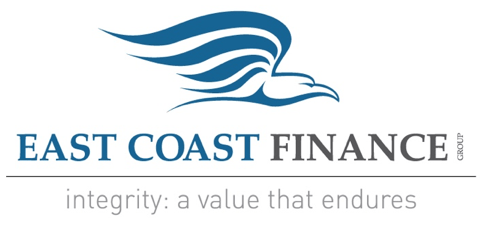Information Hub
Contact Us
Contact Us
Thank you for contacting East Coast Finance Group.
We will be in touch soon
Oops, there was an error sending your message.
Please try again later.
Please try again later.

September 17, 2021
It’s easy to get carried away with the fun part of buying a property – looking at houses – but delaying the less compelling task of arranging finance will weaken your negotiating position on both the property and the loan. Looking for a property to purchase is an exciting time. Choices regarding location, size, number of rooms and local amenities often see house hunters carried away in a deluge of daydreams and anticipation. But, before you get carried away, it’s important to check off the essentials first. Although organising your finances may seem drab in comparison to perusing sales listings, gaining pre-approval with a lender will give you confidence about how much you can afford to borrow. “First and foremost, you need to determine if you’re eligible to borrow money from a lender,” says ME Bank Head of Home Loans Patrick Nolan. “Your ability to repay the loan will need to be assessed. You don’t want to find out after you’ve [made an offer] that your credit history or deposit is not up to scratch.” Arranging finance before finding the perfect property will put you in a good position when it comes time to make an offer. When you do find the house you have always wanted, you can present yourself to the seller and estate agent as a prepared applicant who is serious and reliable. “It shows you mean business and gives them peace of mind that your financing will not fall through. Don’t be afraid to let the selling agent know you have conditional loan approval in place,” Nolan advises.

September 17, 2021
This is by no means a complete list of terms and acronyms used, but it will give you a good start. Application fee – Also called an establishment fee, it’s paid to set up your loan and usually includes legal fees and valuation charges. Appreciation - An increase in the value of a property due to changes in market conditions or other causes. The opposite of depreciation. Arrears – To be behind in a repayment. Body Corporate – An administrative body made up of all the owners within a group of units or apartments of a strata building. The owners elect a committee which handles administration and upkeep of the areas shared by the owners. Break Costs – Also known as economic costs or exit fees. They are charged by an institution to recoup interest lost through a borrower refinancing with another institution or paying their loan out early. Break costs are normally only charged on fixed-rate loans where the amount of interest the institution would receive is easily calculable. It can also be charged well into the variable portion of a honeymoon or introductory rate home loan. Some institutions also charge a flat fee on top of their break cost charge. They may refer to this fee as a “deferred establishment fee”.
Book a Loan Consultation Today
COMPANY
OUR SERVICE AREAS
SERVICES
TRADING HOURS
- Monday
- -
- Tuesday
- -
- Wednesday
- -
- Thursday
- -
- Friday
- -
- Saturday
- Appointment Only
- Sunday
- Appointment Only
CONTACT US
Australian Credit Licence 454395
MFAA Full Member
ABN 61 167 272 335




